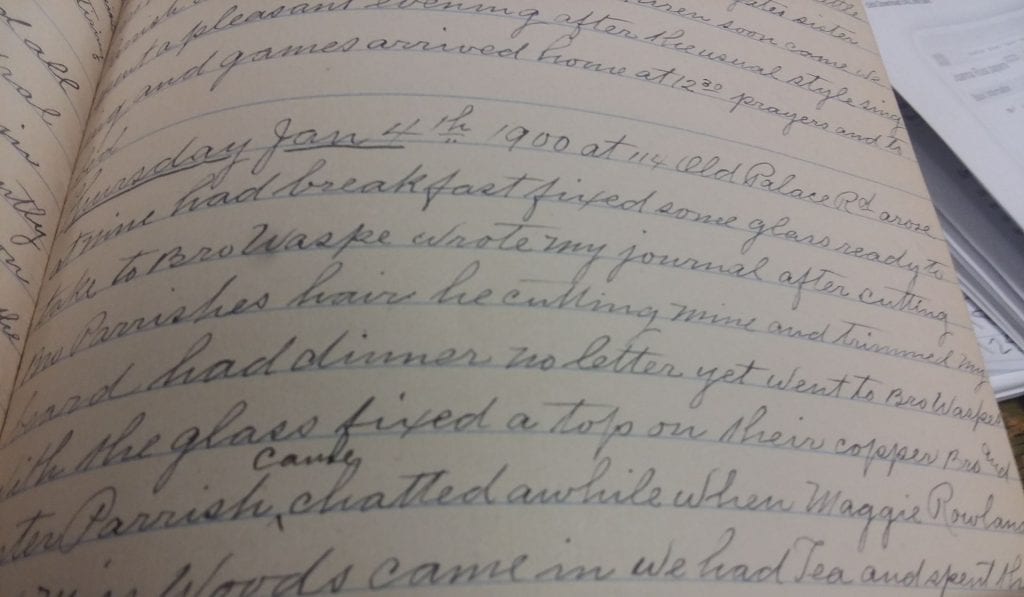Special Collections and University Archives is pleased to announce a new finding aid published for the Heber Hyder Davis papers (Ax 131). The finding aid is available on Archives West.

[Detail of diary entry on January 4, 1900, Heber Hyder Davis papers, Ax 131, Special Collections and University Archives, University of Oregon Libraries, Eugene, Oregon.]
Content of the collection
Collection consists of four journals in Heber Hyder Davis’ hand, two of them from his mission years in England, including many detailed descriptions of his days, the first covering the years 1899 to 1900, the second covering 1900 to 1901, ending with the day he visited Buckingham Palace and saw the King of England. This text consists of many inserts including a flyer from “The Oldest House in England”, a handwritten prayer, receipts, shopping lists, and a flower bud, appears to be a flower in the dandelion family. The second set of volumes are inscribed Trips Book 1 and 2, the first starting February 15, 1901, continues his time in Great Britain, and covers his many travels across the country, most specifically Oregon and California in 1937. The second Trips Book has many genealogical and “Elder Quorum” entries in the beginning and end of the volume, many undated but appear to begin in 1876. In the middle of the volume are Heber Hyder Davis’ handwritten accounts of many automobile trips across the country and his health, covering the years 1925-1940.

[Detail of diary spine labels, Heber Hyder Davis papers, Ax 131, Special Collections and University Archives, University of Oregon Libraries, Eugene, Oregon.]
Notes on processing the collection
I particularly enjoyed his account of seeing the King, and being in Buckingham Palace. We rarely read the collections, but that account caught my eye at the very end of one of his journals while I was searching for dates. He also traveled a great deal in his later years.
The segment on his genealogy was obviously penned several years earlier, so it was difficult to tell what years they were written, as they were faded and difficult to read.
–Danica Alexander, Processing Archivist

